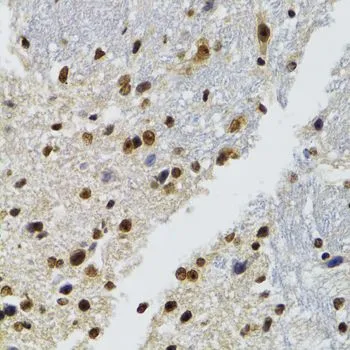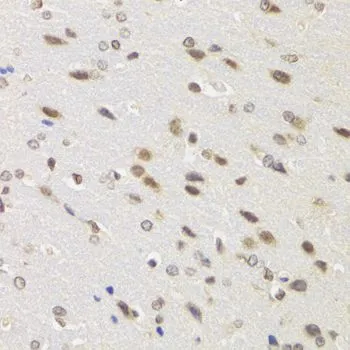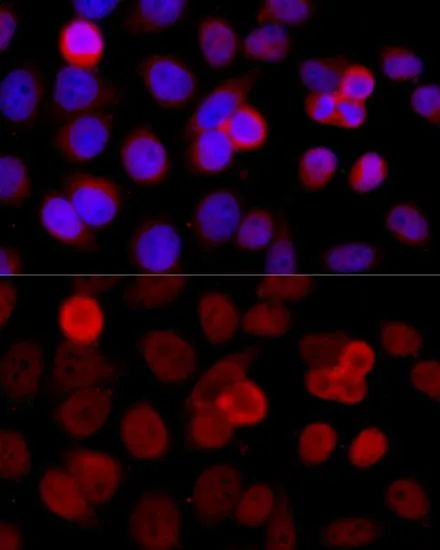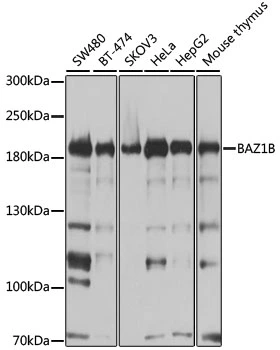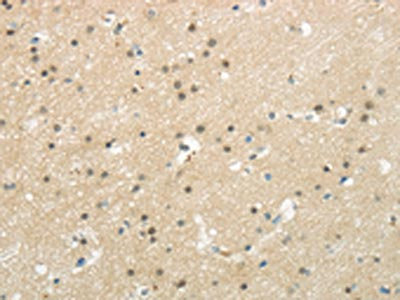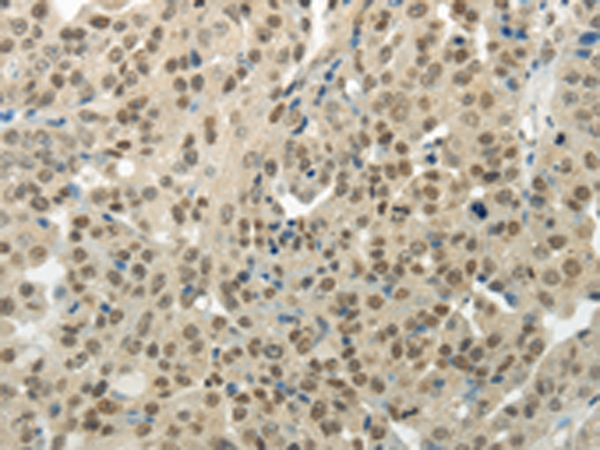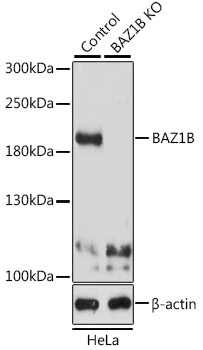
WB analysis of normal (control) and knockout (KO) HeLa cell lysate using GTX64663 WSTF antibody. Dilution : 1:500 Loading : 25μg per lane
WSTF antibody
GTX64663
ApplicationsImmunoFluorescence, Western Blot, ImmunoCytoChemistry, ImmunoHistoChemistry, ImmunoHistoChemistry Paraffin
Product group Antibodies
ReactivityHuman, Mouse, Rat
TargetBAZ1B
Overview
- SupplierGeneTex
- Product NameWSTF antibody
- Delivery Days Customer9
- Application Supplier NoteWB: 1:500 - 1:2000. ICC/IF: 1:50 - 1:200. IHC-P: 1:50 - 1:200. *Optimal dilutions/concentrations should be determined by the researcher.Not tested in other applications.
- ApplicationsImmunoFluorescence, Western Blot, ImmunoCytoChemistry, ImmunoHistoChemistry, ImmunoHistoChemistry Paraffin
- CertificationResearch Use Only
- ClonalityPolyclonal
- ConjugateUnconjugated
- Gene ID9031
- Target nameBAZ1B
- Target descriptionbromodomain adjacent to zinc finger domain 1B
- Target synonymsWBSCR10, WBSCR9, WSTF, tyrosine-protein kinase BAZ1B, hWALp2, transcription factor WSTF, williams syndrome transcription factor, williams-Beuren syndrome chromosomal region 10 protein, williams-Beuren syndrome chromosomal region 9 protein
- HostRabbit
- IsotypeIgG
- Protein IDQ9UIG0
- Protein NameTyrosine-protein kinase BAZ1B
- Scientific DescriptionThis gene encodes a member of the bromodomain protein family. The bromodomain is a structural motif characteristic of proteins involved in chromatin-dependent regulation of transcription. This gene is deleted in Williams-Beuren syndrome, a developmental disorder caused by deletion of multiple genes at 7q11.23. [provided by RefSeq, Jul 2008]
- ReactivityHuman, Mouse, Rat
- Storage Instruction-20°C or -80°C,2°C to 8°C
- UNSPSC41116161

